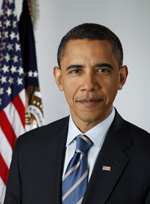New Zealand's opposition Labour Party and the Malaysian Medical Association (MMA) separately urged national negotiators to go slow on the Trans-Pacific Partnership (TPP) trade pact, citing worries over the potential effect on drug costs.
In Malaysia, MMA President Ashok Zachariah Philip said that the government needed to study the provisions on healthcare deeper and understand the potential impacts, the Malaysian Insider reported.
"We have met with the Health Minister and the International Trade and Industry Ministry regarding our concerns," he told reporters at a news conference, the Malaysian Insider said. "However, due to the veil of secrecy surrounding the negotiations, we remain uneasy about the potential outcome."
In New Zealand, the Labour party had said possible provisions on data exclusivity for drugs could cost taxpayers an extra $1 billion, with the party's health spokeswoman Annette King citing a figure of 5 years, according to Stuff.co.nz.
"The effect of lengthening patents for five years on medicines from TPP countries, which produce half of the world's pharmaceuticals, would be to halve the flow of medicines coming off patent for those five years," said King.
The next round of talks are possible in September and are seen as make or break for this year after a negotiating round in Hawaii earlier this month failed to conclude a deal, in part, on a sticking point on the length of data exclusivity for biologic drugs, along with auto trade issues between Japan and North America as well as New Zealand's stance on U.S. dairy subsidies.
 |
| U.S. President Barack Obama |
At stake now is whether the administration of U.S. President Barack Obama can find common ground with the 12 nations in the talks as well as keep the general support of the Republican-backed U.S. Congress, while keeping his own Democratic party from hard opposition as the 2016 election cycle nears.
Republicans, who helped Obama win fast-track negotiating authority which allows for a straight up-or-down legislative vote on any deal, generally support industry calls to keep the 12-year data exclusivity period outlined in the Affordable Care Act, as do many Democrats.
But the exclusivity period for data related to the development of new drugs is part of broader intellectual property discussions under talks that have stoked opposition from civil society groups that say innovative medicines will be costlier in countries that have lower, or no, exclusivity periods now.
A draft of the intellectual-property texts for the TPP leaked earlier this year suggested that the data exclusivity period for biologic medicines has been whittled down to 7 years. Under the U.S. Affordable Care Act, biologics enjoy a 12-year data exclusivity period and trade negotiators from the U.S. are under the requirement to broadly follow U.S. laws.
However, last week Nikkei said Australia and others have softened their positions on data exclusivity, citing sources close to the talks as saying 8 years is now the position.
Nikkei also said that Japan and other countries oppose any period exceeding 10 years and aim to settle on 8 years at the ministerial sessions.
- here's a story from Malaysian Insider
- and one from Stuff.co.nz